Over the coming weeks, we’ll be sharing brief stories from students, faculty, and staff from across BC’s post-secondary system. Post-Secondary Profiles is meant to shine a light on the reality of post-secondary education in British Columbia, by showcasing the successes and challenges faced by dozens of individuals as they work, teach, or study in our post-secondary institutions. These stories reveal not only the transformative power of education on individuals, families, and communities, but also the increasing barriers faced by many in accessing that education.
Read the profiles here or on Facebook, and share them with your friends, family, and colleagues.
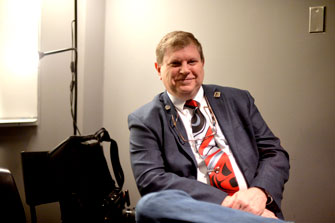 |
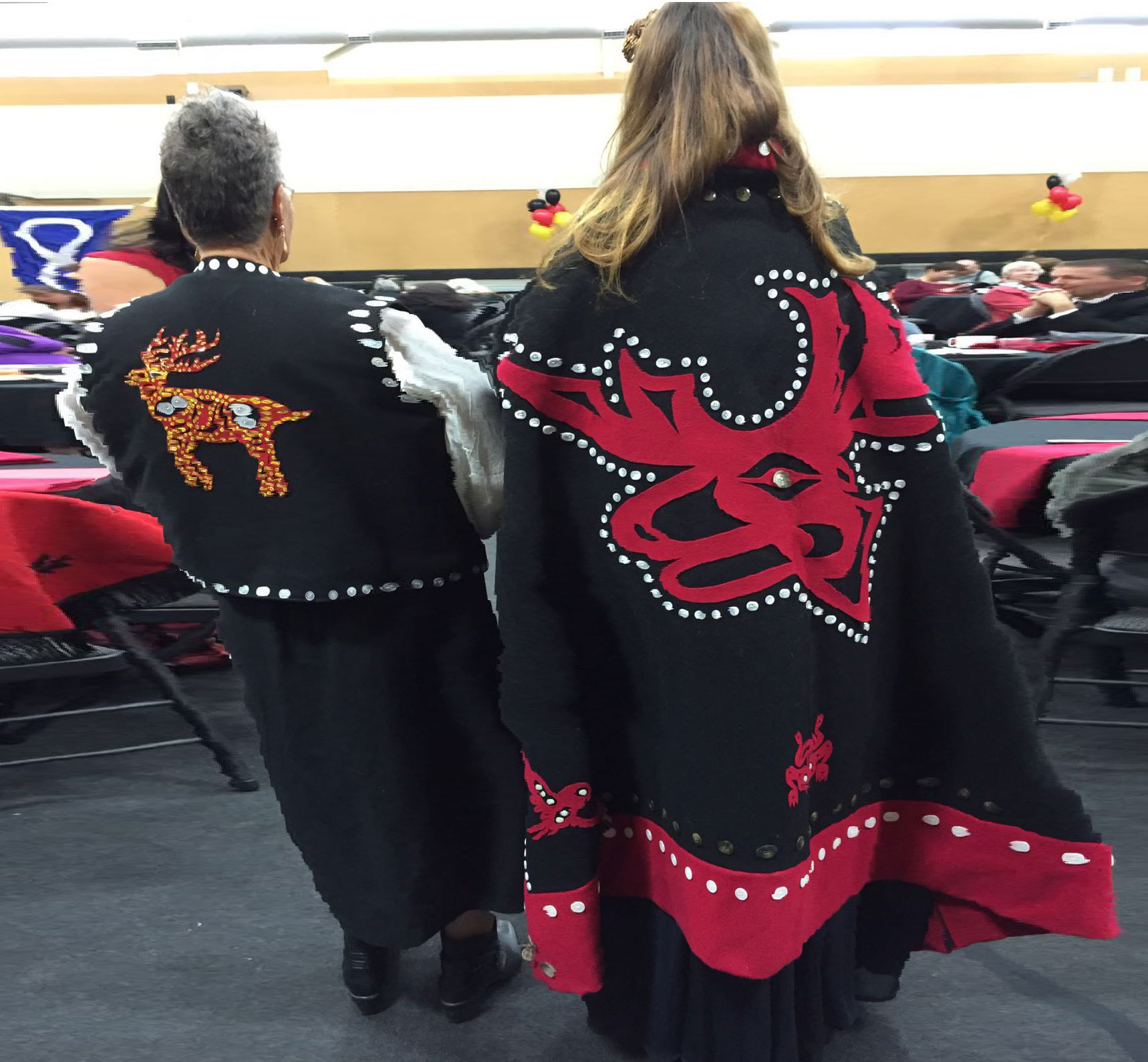 |
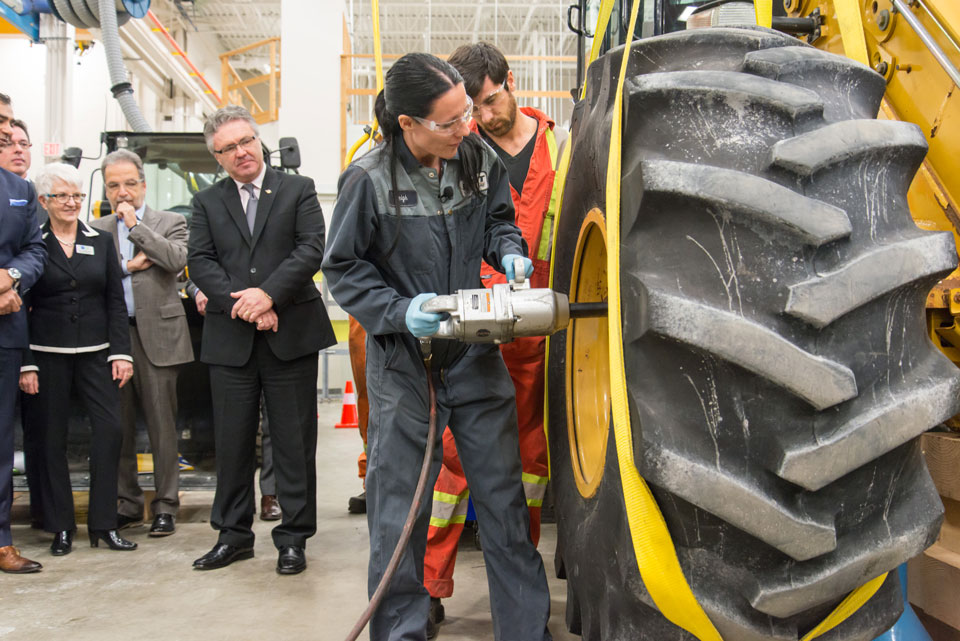 |
|
As a grad student and sessional instructor through the 1980s, I saw first-hand how students and sessional instructors were exploited. Later, as a History Instructor at CNC, I saw college funding reduced time and again, with many programs cut and colleagues laid off. For 17 of those 19 years, I was on the executive of the Faculty Association, so I had a front-row seat to all the changes. Three times during the last four years I was there, I was given lay-off notice, and though each time that notice was rescinded, CNC has lost 135 full-time faculty! I decided long ago that I’d never treat anyone the way I was treated, and have sought to use what talents I may have to advocate for faculty and students as best I can. |
I am from the Wet'suwet’en Territory, member of the Laksilyu Clan and I have been a visitor on the Lekwungen Territory for 12 years. While attending high school, I have had the opportunity to connect to my culture and be an active member within the Indigenous community at the school. It has been a major part of my academic success by giving me the resources and support needed to pursue my goals. As I gave the valedictorian speech at the Aboriginal Graduation Ceremony, my mother, grandmother, and great grandmother sat before me, four generations of strong Indigenous women. We are matriarchs in training, my mother tells me, and I hold that close to my heart as I start my post-secondary career to become a nurse. I am taking the strength I was taught and raised with into the world, so I can share it with those around me. Education is the next part of my journey and I am so excited for all the knowledge that awaits. | I worked in legal office administration and communications, but was unsatisfied with the work. I didn’t know what I wanted to do with my life, but I knew what I didn’t want: I didn’t want to sit at a desk all day, and I didn’t want the routine nine-to-five grind. I wanted variety, I wanted to be challenged and work with my hands. I wanted to find something I enjoyed. I found a trades program at Vancouver Community College and I applied. I was in my 30’s, broke and starting over once again. I had no idea how I would make it work but I knew I had to try. I was the only female in a class with 15 guys and I was one of the top students. I was overhauling huge diesel engines, rebuilding transmissions, changing tires bigger than me! I felt empowered and I felt capable. Suddenly, I was winning awards and being interviewed for newspaper articles. I was on billboards all over Vancouver for a campaign for my school and I was asked many times to speak publicly on behalf of my school, my program and skilled trade workers. Most importantly, I was asked to speak on behalf of women in trades and one day I realized that “I am passionate about this.” Having lived my life up to this point accepting the fact that I wasn’t good enough to do anything truly great and that I had no real passion or dreams, I suddenly realized that I was capable of so much more than I’d ever imagined. None of which would have been possible without the opportunity to obtain a post-secondary education. |
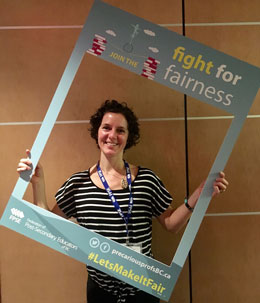 |
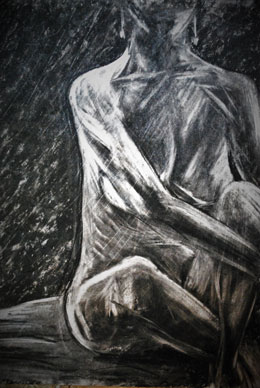 |
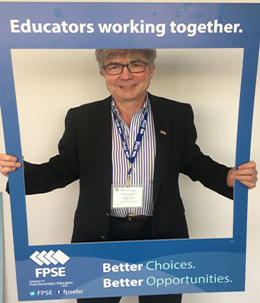 |
| I became an instructor because I am passionate about my discipline and want to share it with others – I desire to inspire! But as a contract faculty member, my employment is precarious: I never know if I have a job from one semester to another. Despite this challenge, the best part of my job is working with my students, and I am committed to seeing my students grow and evolve as a result of what we do in the classroom. | Up until the day I started university, I lived in survival mode. My cultural programming was one of ‘work to survive’, and that only the privileged have opportunities. But a paradigm shift happened in me as a result of education. This shift happened during a life drawing class at Emily Carr University of Art + Design. Looking at and drawing the model that morning precipitated a fundamental shift in how I gazed; I found a new curiosity in form. My instructor helped me understand my assumptions of lines and how to draw what I see. Today, I am a design activist and graduate student in design. My ‘upbringing’ at school informs much of what I now do in my design practice. I have been involved in facilitating places where communities can gather for conversations around sustainability, brought awareness to water conservation, and built community food sharing gardens benefiting underprivileged families in North Vancouver. My day to day is not a struggle anymore, but I always remember where I come from and I am ready for all the challenges life will present. Now, I look at them with a whole new set of tools and eyes. My shift from existence to engagement has been the most beautiful part of my life. | I teach English for Academic Purposes, courses that are meant to give English language learners the ability to develop the language skills necessary to succeed in further post-secondary education. The provincial government has cut the funding for these types of programs, which sends the message to my students that they and their education are not worth the investment. Students come to my classroom looking to gain the skills that will allow them to work towards a better life by continuing their education, but before they can even take the first step toward that life, they are saddled with debt. This is not fair, and it’s not true: students are worth the investment and we must tell them that by voting for post-secondary education. |
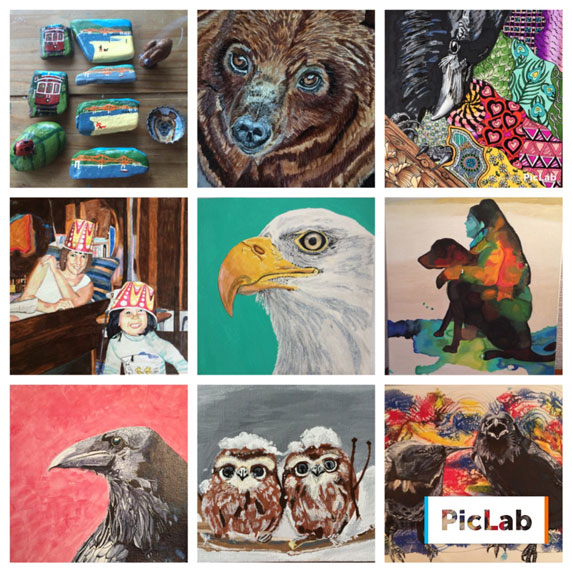 |
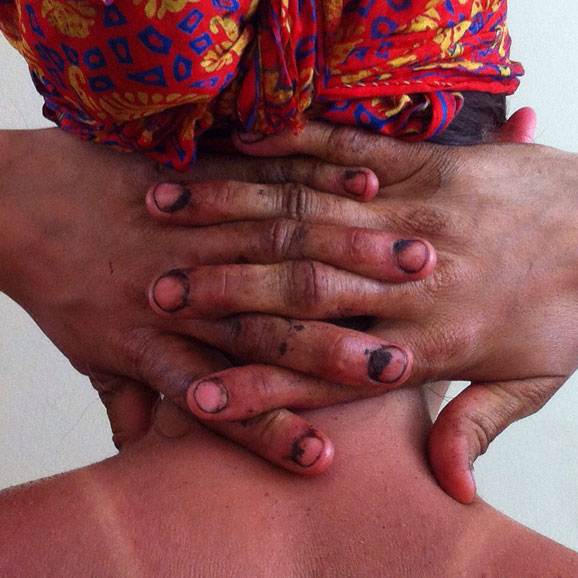 |
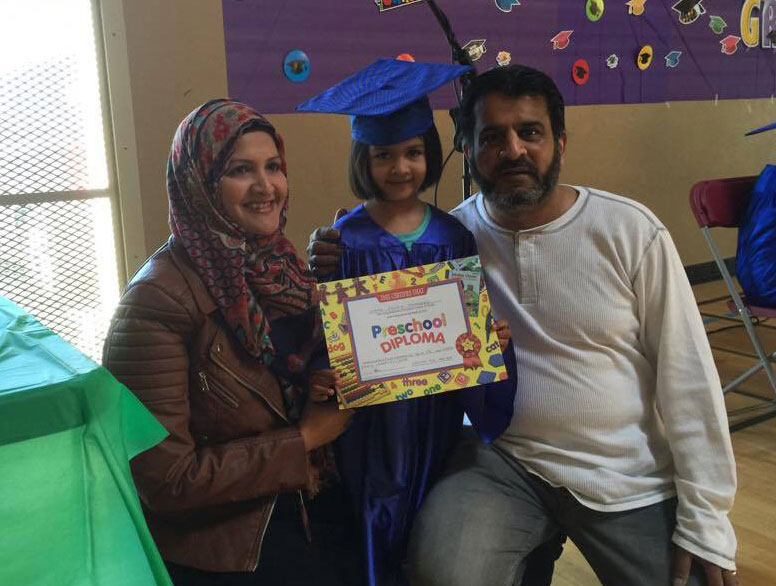 |
| Two years ago, I won a voucher in a raffle to use at Selkirk College. I have always loved art – drawing, painting, making things – but after leaving school in the 80’s, life took over and art fell by the wayside. So I used the voucher towards an evening art class. Afterward, I signed up for another session. I loved it all, and now can’t spend enough time doing my rediscovered passion. Before I got back into art, my passion was (and continues to be) animals. Once I started producing art and showing it to my friends, I realized I could sell it and donate any money I make to rescue animals. My donations from sales have totaled over $2000 so far. Those two courses have definitely transformed my life, helped the community, and helped many rescue animals’ lives too! I like to think if a 50 year old, low-ish income lady can go back to post-secondary education and achieve relative success from an art course, I will inspire others to try further education too, to help achieve their ambitions and dreams. This is an example of why post-secondary education is so important and needs to be available to everyone, regardless of socio-economic status. | The summer after my first year, to afford to stay in Vancouver, I had to compromise my basic needs and decide between spending my limited money on either shelter or food. Despite my best efforts, by the fall semester I had lost fifteen pounds and my body was in a state of anxious starvation. That experience taught me that in the fight to educate ourselves, most people, however well it is hidden, are hungry for something more: we’re hungry for community. While I was dangling from the bottom rung of society, I saw how many people were in the same position, grasping to hold on. We should be able to ask our loved ones and our community for help, but I realized that most people are barely holding on for themselves, while also struggling to hold up a string of people below them. For us, asking for help was no longer an option. How can we be a strong community if we’re unable to meet our basic needs? In my post-secondary education experience, my scholarship left the space of the classroom and instead unfolded in the streets of our communal basic needs, for it is there that I came to understand the oppression of colonial, patriarchal, and neoliberal forces that jeopardize those needs every single day. | I was born in India in a very large family. Despite extreme financial hardships, my family ensured that I received a quality education. Thanks to their sacrifices, I was able to devote myself to studying and became the first among all my siblings to attain a Bachelor’s degree. To repay my family’s sacrifice, I committed myself to assist my nieces and nephews in continuing their studies beyond high school. My accounting career led me to UAE and then Canada. After arriving in Canada, I was taken aback completely, as I realized that all my Indian education and my fifteen years’ worth of work experience meant nothing when seeking employment. The only option was to return to post-secondary education in Canada. Despite all the obstacles, I strongly believe that returning to school will pay dividends in multitudes. First and foremost, the satisfaction of being employed in a field which I enjoy very much. Second, it will allow me to again lend a helping hand to my nieces and nephews pursuing their own post-secondary dreams. But the single most important joy I get is when my two children ask me, ‘Mama, when will I be allowed to go to KPU?’ That is when I realize that education not only transforms lives, but it also transforms generations. Education can bring hope where none existed; it knows no boundaries, no limits. |
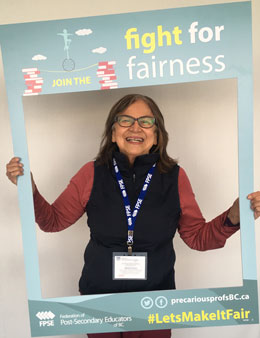 |
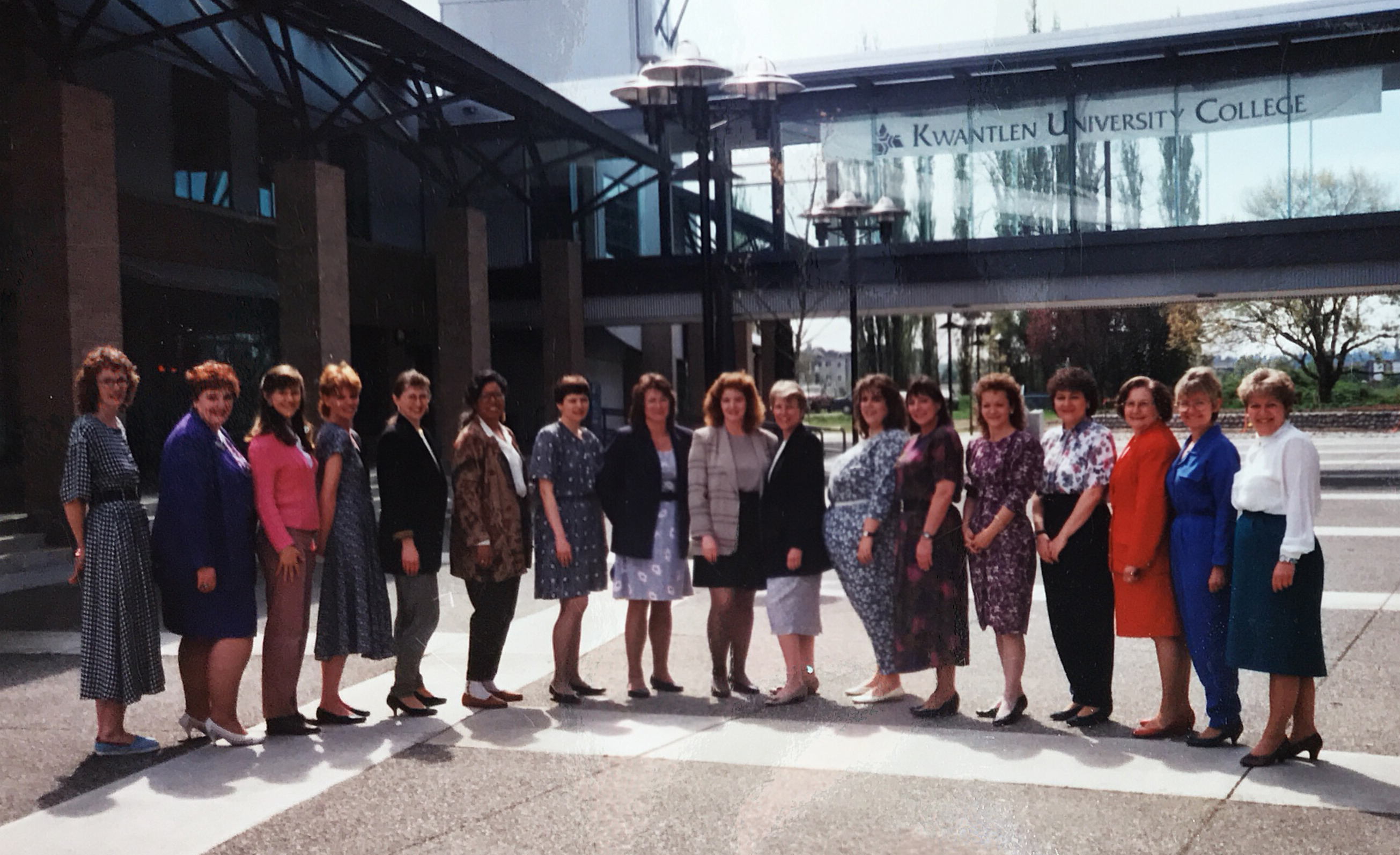
|
|
| I’m a contract faculty member at Nicola Valley Institute of Technology. The best part of my job is teaching Nłeʔkepmxcín, my ancestral language, to others who value and want to carry on our language. The biggest challenge I face as contract faculty is ongoing job security, and I joined the Fight for Fairness in defense of equality for all faculty. |
I have worked with men and women in some sort of career transition for most of my career. When I saw the posting at Kwantlen Polytechnic University for an instructor for the Employment and Educational Access for Women Program (EEAW), I had to apply. I began working at KPU in 1993 as a non-regular faculty. I loved working with the women enrolled in EEAW. I enjoyed helping them discover newfound confidences, improve their communication skills, and assist them in finding a career path. I loved that all of these women came from a variety of backgrounds and socio-economic circumstances, but ended up learning what they had in common. I have been involved in my union, the Kwantlen Faculty Association, almost since I began employment with KPU. I sincerely value what the union did for me in the workplace, including a comprehensive collective agreement. As Secretary-Treasurer of the Federation of Post-Secondary Educators, one of the most meaningful aspects of my job is that I am able to continue to advocate for members and students, and lobby for sound post-secondary policy. |
